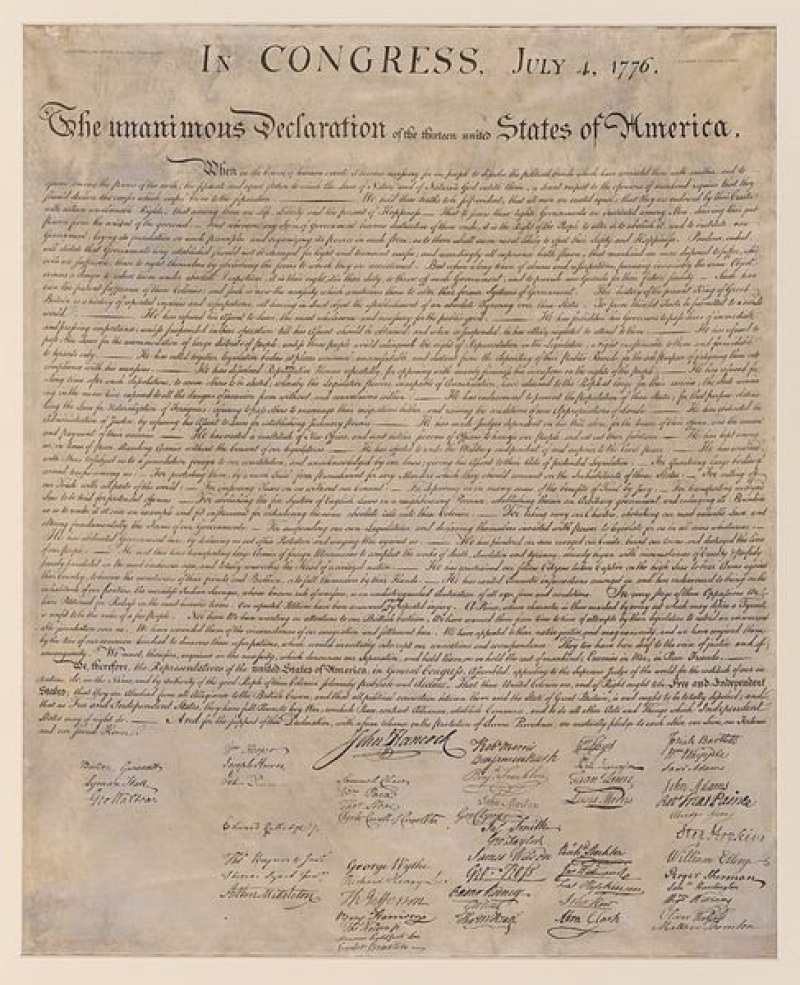
America's founding documents and Constitution were recently labeled by the National Archives and Record Administration as "harmful or difficult," a report says.
The Blaze reported that the NARA has labeled "Harmful Language Alert" its online catalog in an attempt to caution readers that the documents they are about to access may not suit well with their views since it reflects an "outdated, biased, offensive, and possibly violent views and opinions."
The said documents tagged as "offensive" just happen to be the United States Constitution, Declaration of Independence, and Bill of Rights.
"The National Archives and Records Administration (NARA) determined recently that America's founding documents may be 'harmful or difficult' for some users to view since they reflect 'outdated, biased, offensive, and possibly violent views and opinions'," The Blaze said.
"In order to caution readers before they access digital copies of the offensive documents--which, of course, include the Declaration of Independence, the Constitution, and the Bill of Rights--NARA has plastered a 'Harmful Language Alert' above its entire online catalog," the media outlet continued.
Accordingly, the label "Harmful Language Alert" leads to a webpage containing the "Statement on Potentially Harmful Content" of NARA when clicked. It then explains in the said page that they were charged to preserve the "harmful content."
"When users click the alert link, they are redirected to NARA's 'Statement on Potentially Harmful Content.' There the agency explains, almost regretfully, that it is '(their) charge to preserve and make available these historical records.' And by virtue of this charge, the agency explains, harmful content will be preserved," The Blaze added.
When one would visit the National Archives's website and its section on America's Founding Documents, the "Harmful Language Alert" warning would not be seen. It is only displayed when you click one of the subsections in the America's Founding Documents page, such as the Bill of Rights page.
In the said subsection's page, the "Harmful Language Alert: see NARA's Statement on Potentially Harmful Language" label will appear highlighted in a Cyan background at the top of the page just below the Website's Menu. Thus, it only appears in each of the Founding Document's particular page located in the National Archive's Catalog. Clicking the label does lead to the NARA statement.
The NARA's Statement on Potentially Harmful Content contain a Frequently Asked Questions portion on what "harmful or difficult" content are and what makes it as such. It cites items that are "racist," "discriminatory," containing "graphic content," and "demonstrate bias" as indicators for classifying a document, such as the American Founding Documents, as "harmful."
Answering, "What harmful or difficult content may be found in the National Archives Catalog and our web pages?", NARA responds with, "Some items may:
- reflect racist, sexist, ableist, misogynistic/misogynoir, and xenophobic opinions and attitudes;
- be discriminatory towards or exclude diverse views on sexuality, gender, religion, and more;
- include graphic content of historical events such as violent death, medical procedures, crime, wars/terrorist acts, natural disasters and more;
- demonstrate bias and exclusion in institutional collecting and digitization policies."
NARA, in the statement, also called the founding documents a "problem" that their archivists are addressing so that "users better understand such content." It explained that informing users of the "presence and origin" of the said harmful content is one way their archivists address the problem.
The office also highlighted its "institutional commitment to diversity, equity, inclusion, and accessibility" as another solution they undertake to solve the problem, among other things.
























